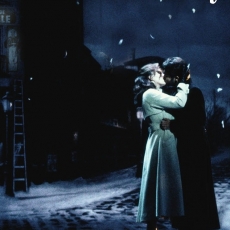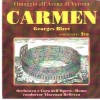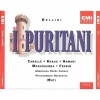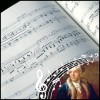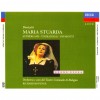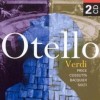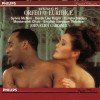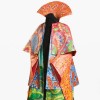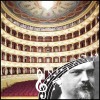Libretto
La bohème is an opera in four acts by Giacomo Puccini to an Italian libretto by Luigi Illica and Giuseppe Giacosa, based on Scènes de la vie de bohème by Henri Murger. The world première performance of La bohème was in Turin on February 1, 1896 at the Teatro Regio (now the Teatro Regio di Torino) and conducted by the young Arturo Toscanini. Since then La bohème has become part of the standard Italian opera repertory and is one of the most frequently performed operas internationally. According to Opera America, it is the second most frequently performed opera in the United States, just behind another Puccini opera, Madama Butterfly.
The story is set in Paris in the period around 1830.
Rodolfo's garret — set design for Act 1 of La bohème for the world premiere performance.
It essentially focuses on the love between the seamstress called Mimì and the poet Rodolfo. They almost immediately fall in love with each other, but Rodolfo later wants to leave Mimì because of her flirtatious behavior. However, Mimì also happens to be mortally ill, and Rodolfo also feels guilt, since their life together likely had worsened her health even further. They reunite for a brief moment at the end before Mimì dies.
Act 1
In the four bohemians' garret
Marcello is painting while Rodolfo gazes out of the window. In order to keep warm, they burn the manuscript of Rodolfo's drama. Colline, the philosopher, enters shivering and disgruntled at not having been able to pawn some books. Schaunard, the musician of the group, arrives with food, firewood, wine, cigars, and money, and he explains the source of his riches, a job with an eccentric English gentleman. The others hardly listen to his tale as they fall ravenously upon the food. Schaunard interrupts them by whisking the meal away and declaring that they will all celebrate his good fortune by dining at Cafe Momus instead.
While they drink, Benoît, the landlord, arrives to collect the rent. They flatter him and ply him with wine. In his drunkenness, he recites his amorous adventures, but when he also declares he is married, they thrust him from the room — without the rent payment — in comic moral indignation. The rent money is divided for their carousal in the Quartier Latin.
The other Bohemians go out, but Rodolfo remains alone for a moment in order to finish an article he is writing, promising to join his friends soon. There is a knock at the door, and Mimì, a seamstress who lives in another room in the building, enters. Her candle has blown out, and she has no matches; she asks Rodolfo to light it. She thanks him, but returns a few seconds later, saying she has lost her key. Both candles are extinguished; the pair stumble in the dark. Rodolfo, eager to spend time with Mimì, finds the key and pockets it, feigning innocence. In two arias (Rodolfo's Che gelida manina – "What a cold little hand" and Mimì's Sì, mi chiamano Mimì – "Yes, they call me Mimì"), they tell each other about their different backgrounds. Impatiently, the waiting friends call Rodolfo, but, while he suggests remaining at home with Mimì, she decides to accompany him. As they leave, they sing of their newfound love (duet, Rodolfo and Mimì: O soave fanciulla – "Oh gentle maiden").
Act 2
Quartier Latin
A great crowd has gathered with street sellers announcing their wares (chorus: Aranci, datteri! Caldi i marroni! – "Oranges, dates! Hot chestnuts!"). The friends appear, flushed with gaiety; Rodolfo buys Mimì a bonnet from a vendor. Parisians gossip with friends and bargain with the vendors; the children of the streets clamor to see the wares of Parpignol, the toy seller. The friends enter the Cafe Momus.
As the men and Mimì dine at the cafe, Musetta, formerly Marcello's sweetheart, arrives with her rich (and aging) government minister admirer, Alcindoro, to whom she speaks as she might to a lapdog. It is clear she has tired of him. To the delight of the Parisians and the embarrassment of her patron, she sings a risqué song (Musetta's waltz: Quando me n’vò – "When I go along"), hoping to reclaim Marcello's attention. Soon Marcello is burning with jealousy. To be rid of Alcindoro for a bit, Musetta pretends to be suffering from a tight shoe and sends him with it to the shoemaker to be fixed. During the melee that follows, Musetta and Marcello fall into each other's arms and reconcile.
The friends are presented with the bill and to their consternation find that Schaunard's money is not enough to pay it. The sly Musetta has the entire bill charged to Alcindoro. The sound of approaching soldiers is heard, and, picking up Musetta, Marcello and Colline carry her out on their shoulders amid the applause of the spectators. When all have gone, Alcindoro arrives with the repaired shoe seeking Musetta. The waiter hands him the bill, and, horror-stricken at the charge, Alcindoro sinks into a chair.
Act 3
At the toll gate
Peddlers pass through the barriers and enter the city. Amongst them is Mimì, coughing violently. She tries to find Marcello, who lives in a little tavern nearby where he paints signs for the innkeeper. She tells him of her hard life with Rodolfo, who has abandoned her that night (O buon Marcello, aiuto! – "Oh, good Marcello, help me!"). Marcello tells her that Rodolfo is asleep inside, but he wakes up and comes out looking for Marcello. Mimì hides and overhears Rodolfo first telling Marcello that he left Mimì because of her coquettishness, but finally confessing that he fears she is slowly being consumed by a deadly illness (most likely tuberculosis, known by the catchall name "consumption" in the nineteenth century). Rodolfo, in his poverty, can do little to help Mimì and hopes that his pretended unkindness will inspire her to seek another, wealthier suitor (Marcello, finalmente – "Marcello, finally"). Out of kindness towards Mimì, Marcello tries to silence him, but she has already heard all. Her coughing reveals her presence, and Rodolfo and Mimì sing of their lost love. They make plans to separate amicably (Mimì: Donde lieta uscì – "From here she happily left"), but their love for one another is too strong. As a compromise, they agree to remain together until the spring, when the world is coming to life again and no one feels truly alone. Meanwhile, Marcello has joined Musetta, and the couple quarrel fiercely: an antithetical counterpoint to the other pair's reconciliation (quartet: Mimì, Rodolfo, Musetta, Marcello: Addio dolce svegliare alla mattina! – "Goodbye, sweet awakening in the morning!").
Act 4
Back in the garret
Marcello and Rodolfo are seemingly at work, though they are primarily bemoaning the loss of their respective loves (duet: O Mimì, tu più non torni – "O Mimì, will you not return?"). Schaunard and Colline arrive with a very frugal dinner and all parody eating a plentiful banquet, dance together, and sing. Musetta arrives with news: Mimì, who took up with a wealthy viscount after leaving Rodolfo in the spring, has left her patron. Musetta has found her wandering the streets, severely weakened by her illness, and has brought her back to the garret. Mimì, haggard and pale, is assisted into a chair. Musetta and Marcello leave to sell Musetta's earrings in order to buy medicine, and Colline leaves to pawn his overcoat (Vecchia zimarra – "Old coat"). Schaunard, urged by Colline, quietly departs to give Mimì and Rodolfo time together. Left alone, they recall their past happiness (duet, Mimì and Rodolfo: Sono andati? – "Have they gone?"). They relive their first meeting — the candles, the lost key — and, to Mimì's delight, Rodolfo presents her with the pink bonnet he bought her, which he has kept as a souvenir of their love. The others return, with a gift of a muff to warm Mimì's hands and some medicine, and tell Rodolfo that a doctor has been summoned, but it is too late to help their friend, who lapses into unconsciousness. As Musetta prays, Mimì dies. Schaunard discovers Mimì lifeless. Rodolfo cries out Mimì's name in anguish, and weeps helplessly.





